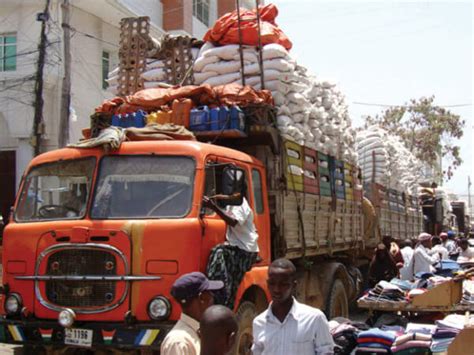Here is an alarm: Nigeria is spending more than necessary on importation of food items. And the concern in the official circle is that such spending may be eating too much into the country’s foreign reserve. Now, here are the disturbing figures. Nigeria’s expenditure on food imports in the first quarter of 2024 soared to $689.88 million. This is said to be representing 17 percent of the country’s total foreign exchange outlay for the period. That in itself is a significant financial commitment to securing food products from offshore markets. When compared to the previous quarter, it comes to an increase of 40 percent. Even more scary is that it underscores the growing reliance on imported food, notwithstanding Nigeria’s vast agricultural potential.
This becomes necessary in the realisation of the current decision of the Bola Tinubu administration to suspend tariffs on imported food items in order to ease the food crisis in the country.
The sectoral utilisation of foreign exchange data contained in the quarterly statistical bulletin of the Central Bank of Nigeria (CBN) appears worrisome. It shows that within the period under review, while the industrial sector took a large chunk of foreign exchange, the food product sector emerged as the second-largest importer. Understandable, you say? Well, look at this: the agricultural sector, which is the foundation of food production, recorded the lowest foreign exchange expenditure of $35.52 million. This calls to question the mantra that the government was working towards massive food production, a feat that can only be achieved by the adoption of mechanised farming in the country.
The government’s response to the debilitating food crisis includes a duty-free window for food imports as revealed recently by the Minister of Information, Mohammed Idris, who disclosed the government’s contemplation of food importation as a temporary cut down the prices of food commodities. He said the government has approved a 150-day duty-free window to allow the importation of maize, husked brown rice and wheat.
While aimed at curbing inflation, critics argue that importing these food commodities duty free, could undermine local production. They say what the agricultural sector needs is increased government support to boost domestic output and reduce reliance on imports.
Sound as that argument is, it loses sight of the fix in which the government found itself where it had to meet the immediate demands of nationals crying of hunger. Since assuming office last year, President Bola Tinubu has done so much to give support for food production and had expressed the belief that scarcity of food would not be a feature of national life this year. But it appeared to have underestimated certain factors, and the food inflation that dogged Nigeria in 2024 was so unprecedented that it was a major reason upon which the national protest was hung.
That, however, did not temper the fears that stakeholders nurse for the suspension of the tariffs. For instance, the national president of the All Farmers Association of Nigeria (AFAN), Kabir Ibrahim, said that the duty-free importation for food items will lead to the erosion of gains made in local production of maize, rice and wheat. He called on governments to invest through the provision of subsidies on inputs such as machines, fertilisers and chemicals in order to have a sustainable food system in the country.
But the Minister of Agriculture and Food Security, Abubakar Kyari, stated during a TV interview in Abuja, that the suspension of import duties on the selected food items into the country will remain in effect only until the next harvest, expected around October or November this year. What that means is that whatever gains made in local production would not be endangered, as feared by Ibrahim.
The Minister highlighted that the importation of food items is a temporary measure by the federal government to curb food inflation and will not continue indefinitely. He added that the country is expected to have a substantial harvest in the coming months, which is anticipated to reduce food prices significantly.
He further explained that the importation of these food items is as a result of the cyclical issue in farming season. According to him, the country is currently experiencing a lean season in agriculture, leading to low production and yield of certain crops in the farmlands. The Minister said this is why the federal government is resorting to specific food items to reduce the impact of these low-yield crops and high prices of staple food in the market.
He made an effort to clear the doubts, when he said, “We are talking about an importation level of 300,000 to 400,000 metric tons per month for all the five crops. It will last only till harvest. It’s about October or November this year. That’s when we’re going to have the harvest. We’re expecting a bumper harvest.
“The season that we find ourselves in now is a cyclical issue that you have in agriculture. This is what you call the lean season and this is between June, July and August before the next harvest.
“That is why Mr. President has decided to import rice, maize, wheat and other staple foods. As soon as all the fiscal issues have been worked out and the ministry of finance and customs have issued out the fiscal aspect of it.”
The increased import bill raises concerns about the country’s food security and highlights the urgent need for policies to bolster local agricultural production and reduce dependency on foreign food supplies. Experts advocate for innovative solutions, such as leveraging the aviation sector for efficient food distribution.












